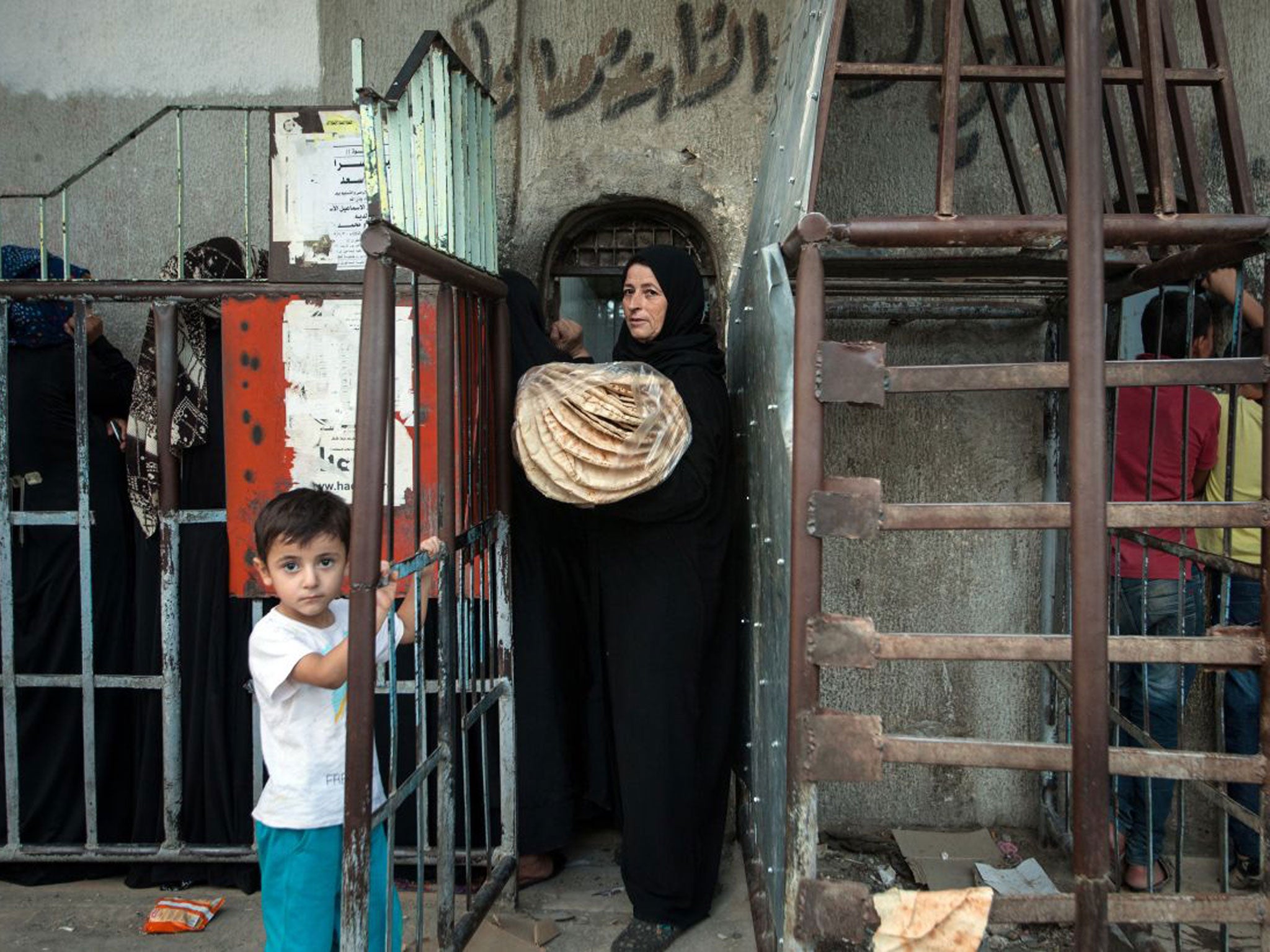Hunger the weapon of choice for Syria's Assad regime
Starvation is being used as a military tactic against the besieged area of Moadamiyeh

Your support helps us to tell the story
From reproductive rights to climate change to Big Tech, The Independent is on the ground when the story is developing. Whether it's investigating the financials of Elon Musk's pro-Trump PAC or producing our latest documentary, 'The A Word', which shines a light on the American women fighting for reproductive rights, we know how important it is to parse out the facts from the messaging.
At such a critical moment in US history, we need reporters on the ground. Your donation allows us to keep sending journalists to speak to both sides of the story.
The Independent is trusted by Americans across the entire political spectrum. And unlike many other quality news outlets, we choose not to lock Americans out of our reporting and analysis with paywalls. We believe quality journalism should be available to everyone, paid for by those who can afford it.
Your support makes all the difference.Moadamiyeh has been cut off from the outside for almost a year.
Activists claim there are thousands of citizens remaining in the area, which has endured electricity cuts, the 21 August chemical weapons attack and now, starvation.
Residents are surviving on a diet of olives and dry leaves and 11 children have died from malnutrition.
Such hardship is not accidental; the Assad regime is using starvation as a military tactic, with one security official calling it the “starvation until submission campaign”.
Activists claim the phrase: “You either kneel for Assad or you die from hunger” is being daubed onto walls next to checkpoints and is gaining traction in the capital.
The age-old tactic entails withholding food and medicine from entering a besieged area, and barring people from leaving.
Only public-sector workers and children are allowed freedom of movement and they are checked so that they do not smuggle in banned goods such as bread or baby milk.
The opposition has also employed the tactic on a smaller scale, and not always successfully. When Liwa al-Tawhid cut off the vital Bustan al-Qasr crossing between East and West Aleppo in the run up to Eid al-Fitr, the local population protested and forced the crossing to be reopened.
The World Food Programme is trying to reach more than 4 million people inside Syria. But there are more than 1 million Syrians trapped in areas where aid deliveries are no longer getting through, according to the United Nations.
The Syrian government has not commented on accusations it is using hunger as a weapon of war. It says that residents have been taken “hostage by terrorists”.
Today, in a rare deal between the two sides, 1,800 civilians were able to leave Moadamiyeh. Some were too weak to walk and had to be carried by Arab Red Crescent volunteers. Activists claim 300 men were immediately taken for interrogation.
“Today there was a new attempt to retake the town,” Qusai Zakarya, an activist still in Moadamiyeh, told The Independent through Skype.
Mr Zakarya hadn’t eaten since 8am that morning. He claims that his diet has consisted of olives and dried leaves for weeks.
Despite the presence of UN Chemical Weapons inspectors in the area, aid workers are still denied access. Other rebel-held towns to the east, south and west of Damascus are under partial siege.
But starvation isn’t only a threat to those in battleground areas. Reports of malnutrition have surfaced in Homs, Hama and Idlib; for the first time there have been incidents of hospitalisation outside of besieged areas.
Western diplomatic sources say some kind of humanitarian access is necessary as a confidence-building measure before it is even feasible to speak of the two sides coming together.
The opposition Syrian National Coalition will decide on whether it will attend peace talks on 9 November.
Today, President Assad was quoted on state TV as saying “the success of any political solution is tied to stopping support for terrorist groups and pressuring their patron states”.
Join our commenting forum
Join thought-provoking conversations, follow other Independent readers and see their replies
Comments